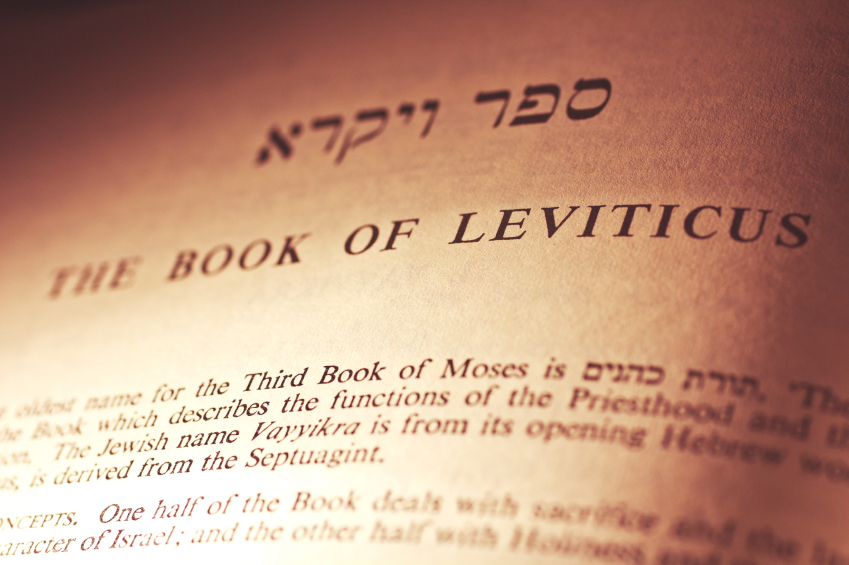|
"How could HE do that?!" "How could SHE say something like that?!" He, she, they, them, others; it's the Pharisee prayer in another form (rf. Luke 18:9-14). I'm afraid that we do not see our own sinfulness. I'm afraid that we've yet to come to the light and let it expose our deeds. I'm afraid that we are content with keeping our own sin concealed rather than getting it out in the open. Sometimes I talk like this to people and they look at me with a strange look on their face that seems to say, "Well, maybe that's you, but it's certainly not me." What we have here is a person that has yet to see the depth of their sin and depravity. They've yet to see that "the law of Yahweh is perfect." (Psalm 19:7) But enough about others, I get caught up in that madness too much; focusing on everyone else and forgetting that I need daily salvation from my sin. I have seen the light of the law. It has shone brightly into my life. As bad as it hurts my pride to admit it, it has cut me deep and exposed me in ways I used to be unaware of. When I see a person stumble into sin, or even living in sin, I now try not to compare that person to me, or compare me to that person. Sure, sometimes my pride rises up and I do, but I want to be at the place where my heart breaks for them. I've experienced it in my life. I know what it feels like to fall. I know what it feels like to have things that are concealed, revealed. My desire is not to see others condemned, but to see that they get help. I'm not called to rejoice when I meet an alcoholic or a drug addict. I shouldn't leave thinking, "Whew, I'm glad that's not me." I'm not called to gloat when I see a woman get caught in adultery or a man cheating on his wife. I'm not called to make my self-righteousness feel better by talking about them or laughing about them. I'm called to have a broken heart for them, to pray for them, to weep for them. To hope that the Savior finds them. I want to teach my children this concept. I want them to be like Yeshua mostly in this regard. To reach out to the lost with a desire to see them found. To help those and talk with those who no one else will touch. I've failed to do this, but I'm trying to correct my failure. I'm trying to instill in my children one of the greater matters of the law: mercy. I've failed miserably in areas of my life, but in those failings there are people who stand out in my mind. The people who stand out aren't the ones who said, "I told you so," or "You should have listened," or "Why did you have to be so stupid!" No, the people who stand out in my memory are the ones who told me, "It's going to be okay," "I'm here to pray with you," "I'm sorry this happened," "There is hope." I don't want people who fall to be hammered into the ground even harder. I want to see them picked up and dusted off. I want to see them restored. I want them to feel the love of the Savior. When I speak this way there are many who want to "remind" me of: "Don't you know that Jesus rebuked people?!" Let me ask you to do something. Go back and read the Gospels. Read Matthew, Mark, Luke, and John, and every time you see Yeshua rebuking someone make a note of that text and examine WHO He was giving the rebuke to. I've studied this and continue to study. It has opened my eyes. I believe it will open anyone's eyes that is willing to see. Luke 7:47 - "Therefore I tell you, her many sins have been forgiven; that's why she loved much. But the one who is forgiven little, loves little."
0 Comments
A Response to "One for Israel's" Blog from 8.2.15 |
| I've heard it said before that Yeshua kept all the law. This is not a correct statement. There is no way that Yeshua could keep all of the commandments, because many commandments did not apply to him. The commands concerning the priests did not apply to him; he wasn't a Levite. | "I've heard it said before that Yeshua kept all the law. This is not a correct statement." |
Certainly, if all the commandments did not apply to Yeshua, then all the commandments do not apply to me or you. The fact that we cannot keep commands that pertain to the Levite priesthood does not mean we can't be Torah observant, no more than someone under the first covenant from the tribe of Naphtali or Simeon - they couldn't keep the priestly commands either. Did that make them non-Torah observant?
One for Israel states, "Basically, keeping the law has become impossible!" They go on to list laws that we cannot keep today (like laws pertaining to the temple, priesthood, sacrifices) after making this statement. Again, in this vein of thought, it is not that the Torah has become impossible to obey, it has always been impossible to obey. I could never obey a law that pertains to my wife as a female, and she could never obey a law that pertains to me as a male. This is true whether we lived under the old covenant or the new covenant.
None of this means that there aren't Torah observant people living then or now. Let me explain.
ALL Christians are Torah observant. Every Christian I've ever met believes that some laws in the Torah are for today. Laws against murder, theft, adultery, and coveting. If you seek to obey these commands in your life, then you are living a Torah observant life. You may not call it that, but that's what it is.
| I remember a nice, Christian woman once asking me why I was wearing little tassels hanging off of my shirt. After I explained (Numbers 15:37-41; Deuteronomy 22:12), she responded, "But that's in the Old Testament, isn't it?" as if that made what I just explained void. I continued to explain how that the "Old Testament" (more correctly termed Holy Scripture) did contain the tassel law, and that there was also mention of the tassels in the Gospels, the historical books recording our Lord's life. Yeshua (Jesus) wore tassels. She was amazed because that was the first time she ever heard that. |
I explained to her that she believed in aiming to keep the commandments just like me. It's just that there were some commandments in the Bible that she (1) didn't know about, or (2) believed had been done away with.
My point is that this woman - without even realizing it - was Torah observant. Sure, as One for Israel said, it is impossible for her to keep all the commandments (just as it was for Yeshua), but that is because all the commandments do not apply to her. That fact takes nothing away from her being a Torah observant Christian woman.
justification and torah
It is common for Christians to see other believers in Messiah wear tassels, eat kosher, keep Sabbath, and then think "Why are they trying to be justified by the law?"
Most people whom I've met, who openly claim to be Torah observant, affirm that the Torah is not for our justification. Sure, we affirm (right along with brother Ya'acov - James) that faith without works is dead being alone (James 2:14-26), but we also affirm that any amount of works, apart from faith in Messiah, do not justify.
I have met a few people over the years who do seek to be justified by the law. I, like most of my Torah observant brothers, believe such to be error; error which leads to damnation because of their rejection of Yeshua as Messiah, Son of the Most High. They have actually placed trust in themselves rather than Yeshua. That is a fatal mistake.
There have always been people who have attempted to be justified by the law apart from faith. Isaiah 1 lists a group of these guys under the first covenant. They tried to obey a handful of outward laws while neglecting other laws. They then showed up on the Sabbath expecting their worship to be accepted. Instead they were rejected. Why? They had no faith. There was no belief. They sought to be justified by works.
We all went astray like sheep; we all have turned to our own way; and [Yahweh] has punished Him for the iniquity of us all. | There exist people like this today. They get so caught up in what they are doing that they begin to think they are earning their way into the kingdom. They forget the truth of scripture. All have sinned and fallen short of the glory of Yahweh (Romans 3:23). There isn't a just man upon the earth who always does good and never sins (Ecclesiastes 7:20). He who keeps the entire law and yet offends in one point is guilty of all (James 2:10). |
What some people do not understand is that for me to acknowledge this, and then get up from penitent prayer and put on tassels or keep Sabbath is not a denial of the doctrine of my sinful nature. This is because the Bible also says that the love of Yahweh is to keep His commandments (1 John 5:3). If a man says he is in Messiah then he should seek to walk as Messiah walked (1 John 2:6). We should not use grace as an opportunity to live sinful lifestyles (Romans 6:14-15). Those who practice sin against the Torah will not inherit the kingdom (Galatians 5:19-21).
If my seeking to honor the Sabbath means I'm trying to be justified by the law, then what about the man who seeks to honor his father and mother? Both are commandments. Both were kept perfectly by Yeshua. So if I attempt to mimic Yeshua and honor my parents, I am not trying to be justified by the law, but if I attempt to mimic Yeshua's Sabbath keeping, I am?
I'm always amazed at how people ask me if I believe salvation is by works because I observe the Biblical dietary law. I've started answering their question with a question (like Yeshua often did): "Seeing that you do not steal from people, do you believe salvation is by works?" Of course in either of those questions, the answer is no. Neither of us believers in Christ are seeking to be justified by the law. The works pouring forth in our lives are a result of faith working by love (Galatians 5:6). It's no different than apples naturally growing off an apple tree. That apple tree isn't an apple tree because it has apples on it, it has apples on it because it is an apple tree.
| No one gets mad at the apple tree for having apples growing off of its branches, yet it seems that when Christians (followers of Christ) produce some of the same fruit Christ produced (dietary observance, Sabbath keeping), there are some who get upset at those people for seeking to keep these commandments. |
Catch this: anything that we follow Christ's example in cannot be wrong. There is no way that we can be in sin by doing anything that Christ did in obedience to his Father's law. He kept the Sabbath. When we keep it today, we are following his example. He didn't eat pork, catfish, or shrimp. When we abstain from those things today, we are following his example.
Do we do those things perfectly, like he did? Of course not. That's why he came, lived, died, and resurrected. We are sinners in need of a Savior. Our obedience will always be flawed, but that doesn't mean we stop seeking to be like the Messiah. He is our example. We are to walk as he walked.
"cherry picking" the law
It is actually most modern Christians who are guilty here. I have many friends who would call themselves Torah observant, and while they acknowledge they certainly aren't perfect in the Torah, one thing they do not do is "cherry pick" which ones they want to obey and cast aside the others.
I remember once preaching a sermon and my daughter tweeting a quote from that sermon. I made the statement that the commandments are not to be approached like a buffet where we pick through them and put on our plate the ones we like and pass over the rest. Yeshua didn't come to destroy a letter or stroke of a letter in Torah (Matthew 5:17-18). This means that any commandments that are applicable to us as individuals today ought to be studied and obeyed as we grow in grace and in knowledge.
After the "cherry picking" statement, One for Israel gives a list of commandments they say you can ask your "Torah observant friends" about to see if they keep them. Let me remind One for Israel that if they do present any commandment we do not seek to keep, it does not disprove our position. It is only an area that we have yet to work on in our lives. So, let's look at their list.
Do you keep your diet 100% animal fat free, as in accordance with Leviticus 3:17?
do you stone your children if they curse you, as in accordance with Leviticus 20:9?
Number one, the death penalty in Torah is akin to what we would call today capital punishment. Such punishment is not to be dolled out by parents at their discretion, but each matter is to be taken to the civil authority in the land, which in Moses' day would be the judges of Israel. Israel was to be a theocracy, a government ruled by Yahweh's commandments, statutes, and judgments.
Furthermore, the cursing of one's parents is further detailed in the parallel passage of Deuteronomy 21:18-21. In context we see that the child here is not an adolescent, nor even a young adult. He is also not a first time offender or even a teenager who loses his or her temper. The child here is a habitual drunkard and glutton who has been reared his entire childhood and young adulthood, but yet cannot be controlled.
So what we have is basically a child who has been raised, is old enough to hold down a job, yet refuses discipline after attempts have been made numerous times. He instead prefers to be a glutton and a drunkard, cursing his mom and dad. It is this type of son the law is referring to. It is this type of son the law tells you to bring to the judges of Israel, and yes - in such an extreme case - the answer is the death penalty. That's not my decision, that's right there in the Bible everyone carries to church each week and says they believe in. It is merciful on the society to put to death such a son. If you argue with this law in its proper context, you are not arguing with me, you are arguing with the Almighty.
What I find interesting is that the only time Yeshua spoke of capital punishment, He was referencing disobedient children. In Matthew 15:3-4 He dealt with the traditions of the elders and reprimanded them for holding fast to their traditions yet ignoring the commandments of Yahweh.
He answered them, And why do you break God's commandment because of your tradition? For God said: Honor your father and your mother; and, the one who speaks evil of father or mother must be put to death.
Yeshua is referring to Exodus 21:17 (and Leviticus 20:9) where Yahweh says, "Whoever curses his father or his mother must be put to death." This law ties in with Deuteronomy 21:18-21. So much for the mentality that believes Yeshua was in opposition to the Torah. Yeshua upheld the Torah, even the penal sanctions of the Torah.
do you never shave your facial hair, as in accordance with Leviticus 19:27?
Take note that this is one of those commands that is gender specific. Leviticus 19:27 applies to me, not my wife. I grow a beard, she does not. Therefore it is impossible for her to obey this command because it doesn't apply to her. That doesn't mean the law is null, it only means it has no application to women.
Do you support the killing of gays and lesbians, as in accordance with Leviticus 20:13?
The Torah teaches the death penalty for unrepentant, practicing homosexuals, and the same goes for adulterers and idolaters (among others). If they commit their sin openly, and are unrepentant in that way of life, they are to be brought to the civil authorities. As long as there are two or more witnesses to their crime, they are to be put to death. Nowhere does the Torah sanction us going around vigilante style and putting people to death in such cases. There is due process of law that must be carried out or else the Torah is broken.
Recognize this: If I see an open homosexual, and start throwing rocks at him, I am violating Torah, not keeping Torah. Yahweh has an order in which His civil judgments are to be carried out.
During the Shabbat, do you not drive or BBQ? (and if you lived before the nineteenth century, will you not turn on lights nor start the heating in the winter if you are cold?), as in accordance with Exodus 35:3?
The kindling of a fire is not speaking of driving a car either. It is perfectly acceptable to drive (travel) to a church meeting on Sabbath, or to visit the sick or elderly. It is lawful to do good on the Sabbath.
In the context of Exodus 35 it would do us good to read the chapters in Exodus before and after. Yahweh is giving the Israelites instructions about working on the Tabernacle which would involve a lot of fires being kindled for blacksmithing, wood-working, and such like. What Yahweh is telling the Israelites is this: make sure to stop working on the Sabbath. Don't kindle a fire, for the purpose of doing all these things for the work of the Tabernacle. You can do all that during the six work days. Rest on the seventh day.
Do you always wear only one kind of fabric on your body so not to mix between linen and wool, as in accordance with Deuteronomy 22:11?
Do you never buy fruit in the supermarket as their producers do not wait until the 5th year to start selling them? (not to mention the fact that the majority of today's supermarket food products includes corn or soy), as in accordance with Leviticus 19:23-25?
the new covenant
When I first read this statement I literally let out a long "sigh..." I am amazed that they are not able to see their error here. I do not say that out of a desire to be harsh, I say it because I really mean it.
Open your Bible and read Jeremiah 31:31-33. You will see that Yahweh speaks about making a new covenant with Israel and Judah. He says that it will not be like the covenant I made with their ancestors, and then He goes on to explain why it will not be like that first covenant. The reason He gives is because THEY broke that covenant. That covenant was written on external stone and the children of Israel violated the terms of the covenant. The difference between the first and second covenants, as specifically stated by Yahweh through Jeremiah, is that the second covenant or NEW covenant is the Torah written upon Israel and Judah's minds and hearts.
So the New Covenant is defined as Yahweh's law on the minds and hearts of the house of Israel and the house of Judah. The same law that was written upon stone is in the New Covenant written upon the heart.
And that is exactly how the first hearers of Jeremiah 31:31-33 would have taken it. They knew the Torah. They knew the commandments on stone. So when Yahweh said he would write His law on their hearts and minds, they would have understood the Torah that existed in their day would one day be written in a special way on the hearts and minds of their descendants.
By the way, that word law in Jeremiah 31:33 is the Hebrew word Torah.
So when One for Israel says that "if someone thinks God is interested in us following these commandments under the New Covenant, then they really don't believe in a New Covenant..." nothing could be further from the truth.
Torah keepers wholeheartedly believe in the New Covenant. We believe in the Biblical definition of the New Covenant - Yahweh's Torah written upon the hearts and minds of His people, Israel and Judah.
What did Jesus Mean?
One for Israel says that the context of the gospel of John shows that Yeshua is simply talking about keeping the commandment he gave about loving one another as he loved us (John 15:12, 17).
| I am surprised that One for Israel does not so much as mention that the commandment to love one another is in the Torah (Leviticus 19:17-18). They also do not explain that love is not abstract. In other words, love doesn't mean that we just have some kind of warm feeling about each other and tell each other "I love you" all the time. |
One for Israel then quotes Romans 13:8, which proves exactly what I am explaining if you will only continue reading in Romans 13:9-10. Open up your Bible and look at it. Verse 8 says that when we love one another we fulfill the law. Verse 9 goes on to list several horizontal, person-to-person commandments, and then concludes by saying, "and whatever other commandment - all are summed up by this: love your neighbor as yourself." Verse 10 ends the thought by saying that "love is the fulfillment of the law."
When we love our neighbor, we fulfill the laws that apply neighbor-to-neighbor. When we love Yahweh, we fulfill the laws that apply man-to-Creator. Laws like the first four of the 10 commandments.
So when Yeshua says, "If you love me you will keep my commandments" he is saying that the person who loves Yeshua will be Torah observant. They will seek to please the Father and the Son by a commandment keeping way of life rather than a licentious life. The Son's commandments are no different than the Father's. He even says in John 14:24 that the words he speaks are not his but are from the Father who sent him. John 15:9-10 is another excellent verse to read in this vein of thought.
are they throwing out torah?
The reality is though that yes, they ARE throwing many portions of the Torah out of the window, for that is the whole point of their blog post! You can't quote passages (as they do) like Psalm 19:10 which says that the commandments are more desirable than gold and sweeter than the honey comb, and then turn around and say, "Well, except for Leviticus 19:27 and Exodus 35:3. They used to be desirable and sweet, but that all changed when the New Covenant came along."
No, ALL of the commandments are just as desirable today and just as sweet today. We should seek to study and learn all of the commandments. When we find ones that we can apply to us as individual people, we ought to make the effort to do just that - apply those to our life. If that means not eating pork, so be it. If that means keeping the Sabbath, so be it. If that means wearing tassels or not shaving my beard, so be it. Any commandments we keep are a way in which we show our Creator and His Son that we love them.
Of course we will always fall short from perfect obedience. Many times we will fall way short, but that does not mean we give up and choose to live a life of practicing sin. Our life of sanctification is a constant struggle against sin. The Psalmist says that the righteous man falls seven times, but gets back up. The first use of the law is to show us we need a Savior. Each time we fall, the law points us to the perfect Savior who never fell; that's the good news. It is our union with Him that makes us whole. Faith in Him, not the law, justifies us.
It is only after we are justified that the law then has another use of being a guide to teach us how we ought to live. We read the Torah, and we apply it to our daily life. In doing so we are loving Yahweh and loving our neighbor.
The new heart that is promised as part of the New Covenant causes us to be obedient to Yahweh's commandments.
I will give you a new heart and put a new spirit within you; I will remove your heart of stone and give you a heart of flesh. I will place my Spirit with you and cause you to follow My statutes and carefully observe My ordinances. (Ezekiel 36:26-27)
For further detailed information concerning the Torah, check out our book titled "Learning to Love His Law."
Author
Blog by Matthew Janzen. Lover of Yahweh, Yeshua, my wife and 5 children. All else is commentary.
Archives
December 2023
January 2023
November 2022
June 2022
March 2022
December 2021
November 2021
May 2021
June 2020
April 2020
November 2019
October 2019
September 2019
July 2019
February 2019
January 2019
December 2018
November 2018
September 2018
August 2018
February 2016
August 2015
January 2015
December 2014
November 2014
June 2014
May 2014
February 2014
December 2013
November 2013
October 2013
November 2012
October 2012
September 2012
January 2012
December 2011
November 2011
October 2011
September 2011
August 2011
June 2011
May 2011
April 2011
February 2011
January 2011
December 2010
November 2010
September 2010
August 2010
June 2010
April 2010
March 2010
July 2009
May 2009
April 2009
March 2009
February 2009
January 2009
December 2008
November 2008
October 2008
September 2008
August 2008
July 2008
June 2008
May 2008
March 2008
February 2008
January 2008
December 2007
November 2007
October 2007
Categories
All
70 Weeks
Abortion
America
Annual Festivals
Atheism
Atonement
Baptism
Bible Study
Biblical Law
Calendar
Children
Christian Living
Christmas
Christology
Church
Culture
Daniel
David
Day Of Atonement
Death
Debates
Denomination
Dietary
Doctrine
Easter
Exodus
Faith
Family
Fasting
Fellowship
Forgiveness
Giving
Gospel
Government
Hanukkah
Harold Camping
Hebrew Idioms
Homosexuality
John 1:1
Judaizer
Luke 7
Marriage
Mercy
Modesty
Monotheism
Natural Disasters
New Moon
Oral Torah
Paganism
Parents
Pastoring
Pharisees
Phylacteries
Poems
Politics
Prayer
Pre-existence
Problems
Prophecy
Repentance
Resurrection
Revelation
Sabbath
Sacrifices
Salvation
Sexual Purity
Sin
Songs
Study
Textual Variants
Thanksgiving
Tithing
Tradition
Translation
Trinity
Virgin Birth
Voting
Voy Wilks
Wine
Witnessing
Worship
Yeshua






 RSS Feed
RSS Feed